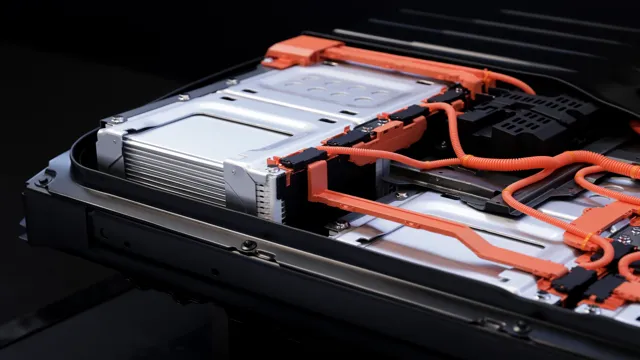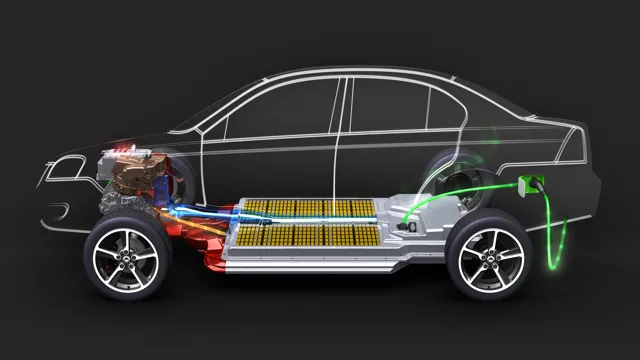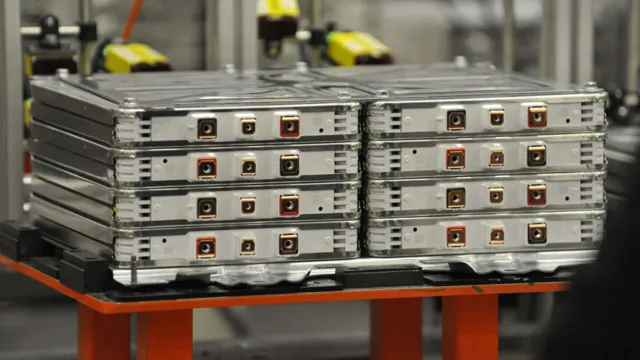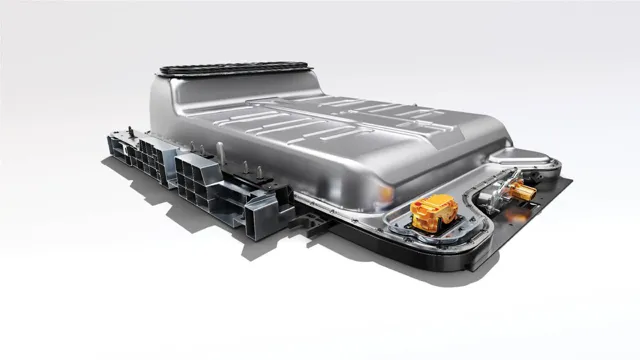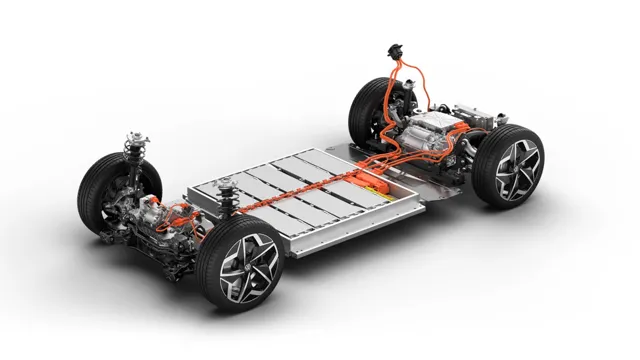The Shocking Truth About Battery Weight in Electric Cars: How It Impacts Efficiency and Performance
As the world continues to shift towards a greener future, one of the most exciting and transformative industries is electric cars. However, while these vehicles are certainly more environmentally friendly than their gas-guzzling counterparts, there are still significant weight-related challenges that must be addressed. Specifically, the weight of batteries in electric cars can be a major hurdle in terms of performance, efficiency, and affordability.
In this blog post, we’ll explore just how heavy these batteries can be, the impact they have on a car’s overall weight, and what automakers are doing to mitigate these challenges. So, buckle up, and let’s dive in!
Why Battery Weight Matters
Battery weight in electric cars is a critical factor that people tend to overlook while buying a vehicle. The weight of the battery pack can significantly affect the overall performance of the car. The heavier the battery, the more energy will be required to move it, resulting in decreased driving range and slower acceleration.
Moreover, heavy batteries put a lot of pressure on the chassis, resulting in increased wear and tear of the vehicle’s components, ultimately leading to lower durability and higher maintenance costs. Therefore, manufacturers are continuously investing in research to develop lighter and more efficient batteries that can reduce the weight and improve the performance of electric cars. When buying an electric vehicle, it is vital to consider the battery’s weight and its impact on the car’s performance, driving range, and overall maintenance cost.
Effect on Range
As electric vehicles become more and more popular, there is an understandable focus on the range that these vehicles can provide for drivers. One often overlooked factor that can drastically affect range is the weight of the battery. The heavier the battery, the more energy is required to move the vehicle, resulting in decreased range.
Think about it like carrying a heavy backpack while walking a long distance – it’s going to tire you out much faster than if you were carrying a lighter load. This is why manufacturers are always looking for ways to decrease the weight of EV batteries without sacrificing performance. By investing in lighter, more efficient batteries, manufacturers can offer drivers better range and a more satisfying driving experience.
So the next time you’re considering an electric vehicle, be sure to ask about the weight of the battery and how it can impact your range.
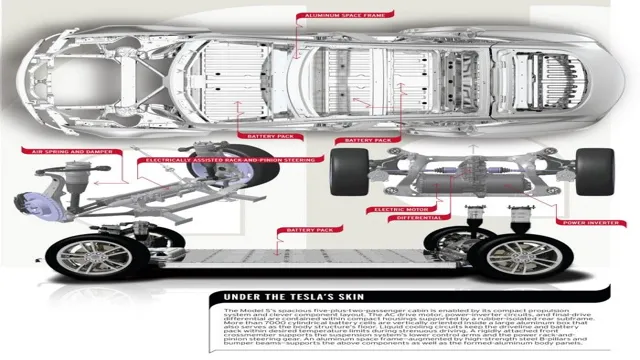
Impact on Performance
When it comes to the performance of batteries, weight plays a critical role. In fact, it’s one of the most important factors that determine the efficiency and overall functionality of batteries. It goes without saying that the more a battery weighs, the more energy it can store, and the longer it will last.
This is why portable devices like laptops and smartphones have batteries that are designed to be as small and lightweight as possible, while larger devices like electric cars have much heavier batteries that can store more energy. However, the weight of a battery can also impact the performance in other ways. For example, heavier batteries can make devices bulkier, which can make them less portable and more cumbersome to use.
They can also affect the power efficiency and lead to slower overall performance. Therefore, it’s important to strike a balance between weight and energy storage to ensure optimal performance and usability.
How Much Do Electric Car Batteries Weigh?
When it comes to electric cars, one of the questions that often arises is how much the batteries weigh. Well, it depends on the size of the battery and the type of vehicle. The average weight of batteries used in electric cars is around 1,000 lbs or 450 kg.
However, high-end electric vehicles may use batteries that weigh more than 1,500 lbs or 680 kg. This weight is significantly more than conventional car batteries, but it is crucial for the car’s range and performance. The battery is typically the heaviest component in an electric car, but advancements in battery technology are ensuring that battery weight is reducing and range improving over time.
However, the weight of the battery is not just an issue for the car’s performance; it also carries implications for consumer safety, handling, and maintenance of electric cars that depend on these powerful batteries. Overall, electric car batteries are weighty, but they are necessary to power the vehicle and deliver an exceptional driving experience.
Average Battery Weight
electric car batteries, weigh, average battery weight If you’re thinking of purchasing an electric car, you may be curious about how much the battery weighs. After all, the battery is the most crucial component that powers the vehicle. The average weight of an electric car battery can vary depending on several factors such as its capacity, chemistry, and overall design.
However, most electric car batteries weigh around 500-1,200 pounds or 227-545 kg. The weight of the battery also affects the car’s handling and performance. Car manufacturers are always looking for ways to reduce the battery weight to improve range and efficiency.
Some electric cars use lightweight materials like carbon fiber to reduce the weight of the battery pack. It’s important to note that battery weight is just one aspect to consider when purchasing an electric car. Other factors like the car’s range, charging time, and cost are just as important to consider before making a decision.
Nonetheless, as battery technology continues to evolve, we can expect to see lighter and more efficient batteries in the future, making electric cars an even more attractive option for drivers looking for an eco-friendly alternative.
Examples of Battery Weights in Popular Electric Cars
Electric car batteries are one of the factors that contribute to the overall weight of the vehicle. However, the weight varies depending on the size of the battery, the type of electric car, and the manufacturer. For example, the Tesla Model S has a battery pack that weighs around 1,200 pounds, while the Nissan Leaf’s battery pack weighs around 600 pounds.
The Chevrolet Bolt’s battery pack weighs about 960 pounds, and the BMW i3’s battery pack weighs around 450 pounds. It’s essential to note that the battery pack’s weight affects the car’s range, acceleration, and handling. Hence, manufacturers continue to explore ways to make the battery pack lighter without compromising performance.
Despite the weight, electric cars remain a popular choice due to their environmental sustainability and lower operating costs.
Ways to Reduce Battery Weight in Electric Cars
Electric cars have revolutionized the automotive industry, but their batteries can be quite heavy. Excessive battery weight can lead to reduced range and performance, making it essential to find ways to reduce the weight. Fortunately, there are multiple ways to achieve this goal, including the use of lightweight materials, optimization of the battery pack design, and reducing the size of the battery.
Utilizing lightweight materials such as aluminum and carbon fiber can offset some of the weight, but battery optimization is the most effective way to reduce weight. This involves a redesign of the battery layout, with the use of prismatic cells instead of cylindrical ones. Additionally, optimizing the battery’s thermal management system can reduce the size and weight of the cooling system, further reducing the overall weight of the vehicle.
With the implementation of such measures, automakers can achieve a more balanced car weight profile, while also improving the driving experience for electric car owners.
Using Lighter Materials
When it comes to electric cars, one of the biggest challenges is reducing battery weight. However, there are various ways to address this issue, including using lighter materials. For example, car manufacturers can incorporate aluminum and carbon fiber into the design of electric cars as opposed to traditional steel.
This not only reduces the weight of the vehicles but also makes them more efficient. Additionally, replacing heavy lead-acid batteries with lighter lithium-ion batteries can further reduce the overall weight of electric cars. Investing in lightweight components for the interior and exterior of the vehicle can also help reduce its weight.
By utilizing these methods, electric cars can improve their overall range, making them better for the environment and more cost-effective for consumers.
Improving Battery Technology
As electric cars become more popular, improving battery technology is essential. One of the primary ways to achieve this is by reducing the overall weight of the batteries. This can be accomplished through the use of lighter materials in construction or by designing the batteries to be more efficient and compact.
Lithium-ion batteries are currently the most commonly used in electric cars, but there is ongoing research to find alternatives that are lighter and less expensive. Additionally, some manufacturers are exploring ways to incorporate battery systems into the body of the car to reduce weight. For example, Audi has developed a prototype for a car with a lightweight carbon fiber structure that integrates the battery into the frame.
By reducing the weight of the batteries, electric cars can become more efficient and practical for everyday use, ultimately making them more accessible to a wider range of people.
Conclusion
In conclusion, when it comes to electric cars, battery weight is a crucial factor to consider. It’s like carrying around a heavy backpack on a hike – the heavier it is, the more energy you’ll use to carry it. But fear not, as technology continues to advance, we can expect to see lighter and more efficient batteries hitting the market, making electric cars even more practical and sustainable.
So, buckle up (but not too tightly) and get ready for a lighter, brighter electric car future!”
FAQs
Why is the weight of the battery important in electric cars?
The weight of the battery is important in electric cars because it affects the car’s overall weight and performance.
How heavy are the batteries in electric cars on average?
The weight of the batteries in electric cars varies, but they can range from several hundred pounds up to over 1,000 pounds depending on the make and model of the car.
How does the weight of the battery affect the range of an electric car?
The weight of the battery can affect the range of an electric car because a heavier battery requires more energy to move, which can drain the battery faster and reduce the car’s overall range.
Are car manufacturers working to reduce the weight of batteries in electric cars?
Yes, car manufacturers are investing in research and development to create lighter and more energy-dense batteries for electric cars, which will help improve their performance and range.
Are there any drawbacks to using lighter batteries in electric cars?
While lighter batteries can improve the performance and range of electric cars, they may also be more expensive to produce and may not be as durable as heavier batteries, which could impact their overall lifespan.
